How to Keep Track of Business Expenses in 8 Steps (2025 Guide)

Business expenses are costs required for running your business. This includes everything from the cost of goods sold to advertising and office expenses.
Business expense tracking is key to maintaining an accurate picture of your company’s finances, but it’s easy to get caught up and forget to regularly record your expenses. Establishing a process for tracking your business expenses helps you stay on top of your spending.
We’ll explore steps for tracking your expenses to help you categorize and organize your spending, generate accurate financial records, and promote informed financial decision-making.
Key Takeaways
- Business expense tracking is key to keeping accurate financial records and making the most of tax deductions.
- A business bank account helps you separate your personal and business finances.
- The right accounting software can automate your expense tracking process.
- Generally, the IRS requires you to keep records including expense receipts for 3 years.
- Expense tracking improves cash flow, helps with tax savings, enables you to identify your spending costs and associated trends, assists with the detection of potential errors or fraud, and promotes financial planning.
Table of Contents
- Open a Business Bank Account
- Use Corporate Credit Cards
- Use Accounting Software
- Connect Financial Institutions
- Manage Receipts
- Record Expenses Regularly
- Have an Expense Policy
- Use Invoices
- Benefits of Small Business Expense Tracking
- Challenges to Expense Tracking for Small Businesses
- Common Business Expenses
- Track Business Expenses with FreshBooks
Explore these 8 steps for how to keep track of business expenses to establish an effective expense-tracking system for your small business.
1. Open a Business Bank Account
Having a dedicated business bank account is key to keeping your taxable income and business expenses organized. Separating your personal and business finances simplifies your financial management and expense tracking, making it easier to prepare your information for tax filing.
There are three types of bank accounts that a serious business owner should have:
- A business checking account for day-to-day transactions and expenses
- A business savings account to manage investments and growth
- A merchant services account for accepting customer card transactions
When you maintain separate bank accounts for your business and personal finances, you reduce the risk of accidentally mixing up transactions. Bank statements will also be separate for each account, saving you time separating your personal and business expenses. This makes it easier to organize your finances so you can claim the appropriate business deductions and minimize the potential for mistakes that could lead to a tax audit.
For example, it is always a good idea to have a separate account dedicated to trust funds collected from customers (retail sales taxes) on behalf of the state and local governments or payroll taxes deducted from employees’ wages that need to be remitted to the federal government. Having a separate bank account will ensure that the business does not accidentally spend these funds.

2. Use Corporate Credit Cards
A corporate credit card is an effective way to track your business expenses, accumulate rewards, and build a credit history that can help you access loans and business financing.
Having a corporate credit card that you use only for business purchases offers an easy way to keep track of your expenses. You’ll be saved from having to separate your business and personal spending—instead, you’ll know that everything on your statement was used specifically for your business.
Many corporate credit cards also offer rewards. These can range from basic cash-back systems to points accumulation for travel, hotels, and more. It’s worthwhile to explore different corporate credit cards and see which offers you the greatest rewards for your business spending.
Finally, building a credit history for your business helps demonstrate to potential investors and lending institutions that you have good financial management practices.
3. Use Accounting Software
Accounting software offers an easy, affordable way to streamline your business expense tracking. In addition to automating the expense-tracking process, accounting software can help you organize your financial records and generate automatic financial reports.
FreshBooks accounting software offers a great solution for effortless expense tracking. The double-entry accounting system makes it easy to organize your business income and expenses so your accountant will have everything they need to file your taxes. Upload receipts for quick expense recording and categorization, then generate financial reports to review your expense management in the blink of an eye.
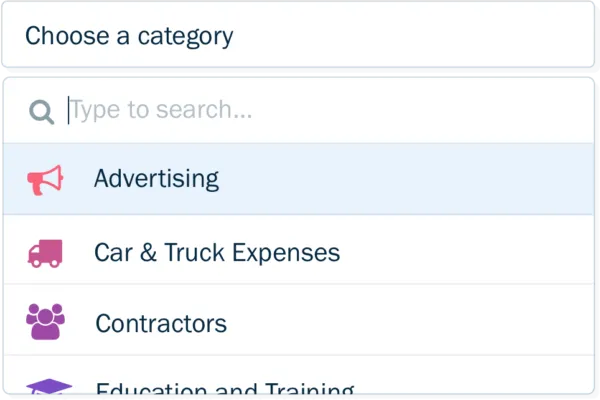
4. Connect Financial Institutions
Get the most out of your accounting system by connecting your financial institutions to your accounting software for startups. This enables you to automatically import your banking transactions for quick and easy organization.
Linking your financial institutions improves the ease and accuracy of your financial management. In addition to automatically importing expenses and income, you can quickly categorize your expenses and create organized financial records.
By synchronizing your systems for automatic import, you reduce the potential for human error in your data processing. You won’t have to worry about missing transactions or entering incorrect amounts—your software will automatically update your transaction records and download your recent bank statements.
5. Manage Receipts
Keeping track of your receipts is essential for accurate tax filing. Recording your receipts helps you track and claim your business expenses to get the most from your tax return. The IRS also requires you to keep documentation including receipts and bank statements for at least three years, so it’s helpful to have a digital system to maintain accurate records and reduce clutter.
FreshBooks receipt tracking software offers an easy way to keep track of all your receipts. It helps you log and categorize your expenses so you’ve got all your information on hand for tax season. With the mobile receipt scanning app, you can also scan and save paper receipts and digital receipts for quick categorization.
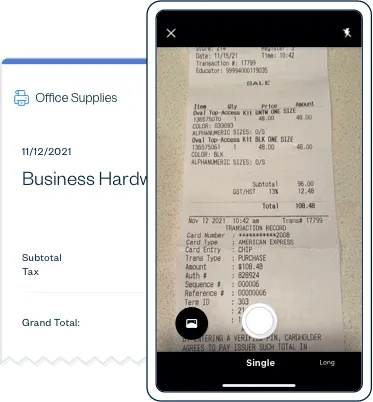
6. Record Expenses Regularly
It’s important to record your expenses regularly to ensure that your financial information is always up to date. Developing a habit of regular expense recording and review also helps you to catch any potential errors.
Decide how often you want to update your expense records, then set aside time to maintain that practice. Some small business owners choose to record expenses as soon as they make a purchase. Others may record expenses every week, or whenever they receive their bank and credit card statements.
The right software can streamline your expense recording process. FreshBooks expense tracking software integrates with your bank and credit cards to automatically update with new transactions. It’s always a good idea to do a regular expense review so you’re aware of your expenditures, but with expense tracking software to record your expenses for you, you can feel confident in a quick and accurate process.

7. Have an Expense Policy
Having a clear expense policy is essential for ensuring that all business expenses are conducted and reported properly. Standardizing your process also makes for easier bookkeeping and simplifies your reimbursement system.
Whether you’re an established company or just starting out, outlining an expense policy ensures you have a solid framework to support you as you grow. Your expense policy is tailored to your company’s needs, but may include things like:
- Outlining what qualifies as a valid business expense
- Setting amount limits for business purchases
- Detailing methods for business purchases, such as using a company credit card
- Providing steps for employee reimbursements for business expenses
Make sure that everyone in your organization understands your expense policy. This ensures that all expenses can be centrally tracked and recorded so your financial records remain up to date and you can compensate employees for necessary business expenses.
8. Use Invoices
Invoices are a helpful way to consolidate and organize your financial and business transactions. Using invoices for your clients helps encourage timely payments while keeping invoices for your business payments helps you track your company’s expenses.
FreshBooks invoicing software makes it easy to include business expenses on your invoices, so you can bill clients for things like tracked time, materials, and more. Keep a copy of all invoices you send to your clients so you have records of your expenses and income.
It’s important to also keep copies of invoices for business expenses. This can include things like parts and labor for your manufacturing, invoices from subcontractors, and other necessary expenses for running your business. Remember to keep all expense receipts and invoices for at least three years to meet IRS tax filing requirements.
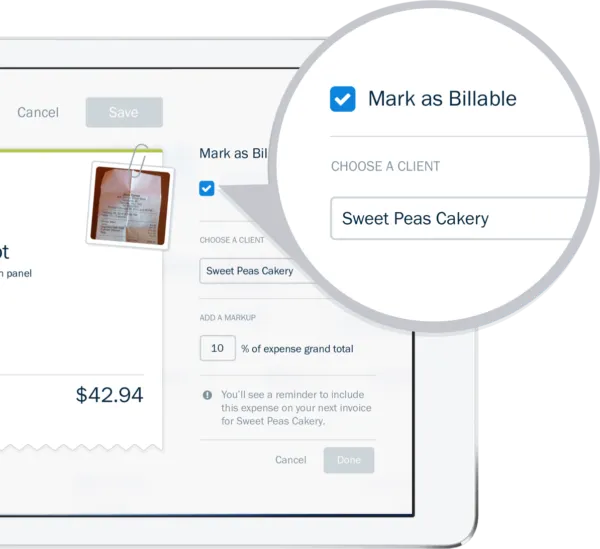
Benefits of Small Business Expense Tracking
Small business expense tracking has several benefits:
Organized Books
Staying on top of your expense tracking ensures that your books are always up to date. You’ll be able to generate accurate financial reports, share financial information with investors, and file your taxes in no time.
Regular expense tracking also saves you time and energy during tax season, so you can focus on running your business rather than reviewing and updating a year’s worth of expense information.
Improve Cash Flow
When you regularly track your expenses, you can maintain an accurate understanding of your business’s real cash flow. This enables you to cut unnecessary costs, create an up-to-date business budget, and plan ahead for important business decisions.
If you’re short of cash you can plan ahead, and if you have extra cash you can pay down debt or make early investments to grow your profits.
Tax Savings
You can claim many necessary business expenses as deductions on your taxes, but it’s important to have the required documentation to back up your claim. By regularly recording your expenses, you can keep track of all claimable expenses and make the most of your tax return. It’s also a good opportunity to organize receipts, bank statements, and invoices so you can provide them to the IRS, if necessary.
Better Financial Planning
Understanding your business expenses helps you create a profitable strategy for your company’s future. You can analyze which expenses are necessary and productive for your business and catch any expenses that may not be effectively contributing to your business operations.
Business expense tracking also helps you forecast future expenditures so you can develop a spending strategy that’s in line with your overall financial health and goals.
Spot Fraud
Recording and reviewing your business expenses also helps you catch any incorrect charges or potential fraud. Often, incorrect charges can be reversed or challenged if they’re caught quickly, so it’s in your best interests to review your expenses for suspicious charges. If you suspect fraud, you can also take action to prevent it from occurring again.
Challenges to Expense Tracking for Small Businesses
Expense tracking is essential for small business financial management, but there can also be some challenges when tracking expenses yourself. The following issues may arise when tracking your expenses.
Human Error
Manual data entry is subject to human error, which means you may end up with missed transactions, duplicate transactions, or incorrect amounts on your books. Regularly reviewing your expense tracking can catch these errors. Expense tracking software that automatically imports expenses from your credit card and bank account can also reduce the risk of human error.
Approval Delays
Many transactions are subject to approval delays, meaning that your payments may not be reflected in your bank account on the same day that you make the transaction. It’s important to keep track of your expenses as they appear in your bank account so that you have a clear picture of the real cash flow available to you.
Expense Fraud
Particularly for larger organizations, there’s a risk of fraud with unauthorized or invalid expense claims. It’s important to establish an expense policy so everyone in your organization is clear on what qualifies as a valid expense. Implementing internal controls in your company, such as separation of duties, will also mitigate the risk of fraud or errors. It’s also helpful to regularly review your business expenses to catch any potential fraud before it grows and impacts your cash flow.
Time Lag
Many businesses choose to do their expense recording and review at the end of the month, or whenever they receive their bank and credit card statements. As business environments can change rapidly, this may be too infrequent to support rapid strategic changes.
Reviewing your expenses more regularly and using software that automatically integrates transactions in real-time can help you make faster and more accurate financial decisions.
Common Business Expenses
It’s important to track all of your business expenses and categorize them so you can claim all valid tax deductions. Some common business expense categories include:
- Cost of Goods Sold: These are the costs directly associated with the production of your goods or services, including materials and labor required to make or deliver your product.
- Administrative Expenses: These include rent and utilities for office space, phone and internet expenses, salaries, benefits, office supplies, and insurance.
- Selling Expenses: These include advertising and marketing, freight-out, and sales staff salaries and commissions.

Track Business Expenses with FreshBooks
Tracking business expenses is key to maintaining accurate financial records, creating effective business strategies, and making the most of your tax deductions. It’s also important to keep expense records to meet IRS tax compliance requirements.
The right tools make it easier to manage your business expenses. FreshBooks expense tracking software connects to your bank account and credit card to automatically import business expenses, eliminating the need for time-consuming manual entry. Automatically scan and upload receipts, organize your expenses, and boost your business productivity. Try FreshBooks free to get started with easy and accurate expense tracking today.
About the author
Sandra Habiger is a Chartered Professional Accountant with a Bachelor’s Degree in Business Administration from the University of Washington. Sandra’s areas of focus include advising real estate agents, brokers, and investors. She supports small businesses in growing to their first six figures and beyond. Alongside her accounting practice, Sandra is a Money and Life Coach for women in business.
RELATED ARTICLES


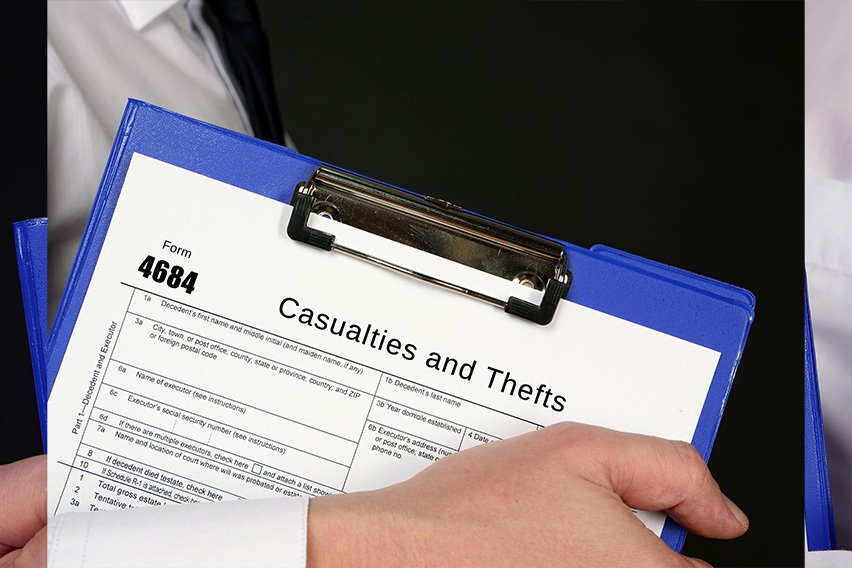 Can You Write-off Theft on Taxes? Not Anymore.
Can You Write-off Theft on Taxes? Not Anymore. Tax Deductions for Hobby Business: How Much Can I Deduct?
Tax Deductions for Hobby Business: How Much Can I Deduct?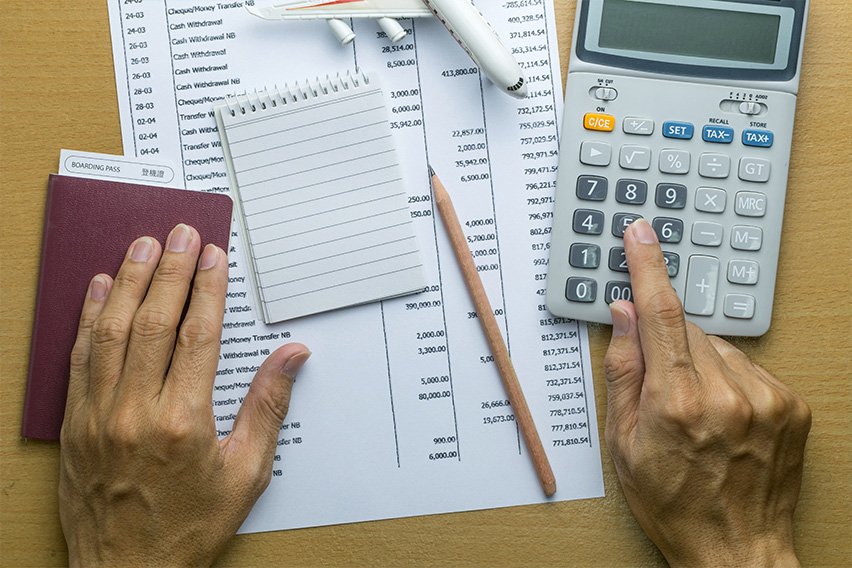 Travel Expense Deductions 101
Travel Expense Deductions 101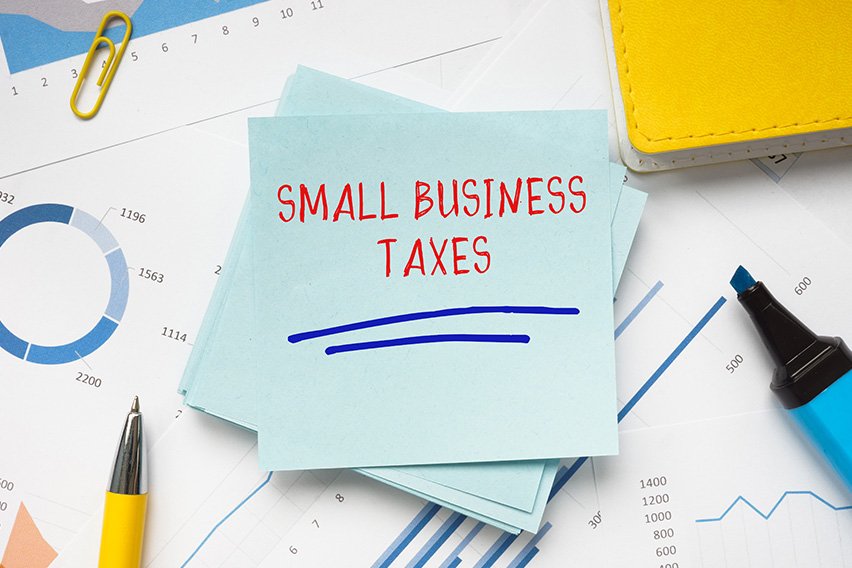 Miscellaneous Expenses: Definition, Deductible Expenses and Examples
Miscellaneous Expenses: Definition, Deductible Expenses and Examples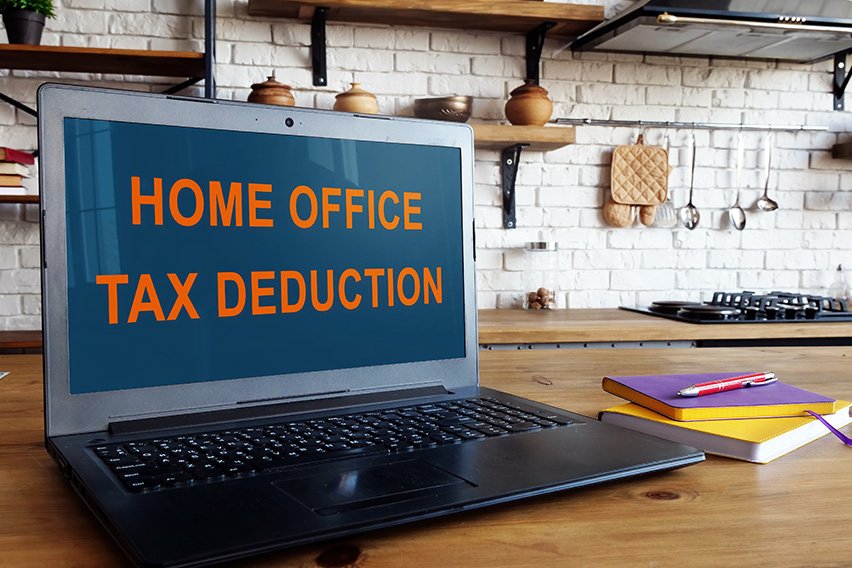 Tax Deductions for Home Office: A Guide for Small Businesses
Tax Deductions for Home Office: A Guide for Small Businesses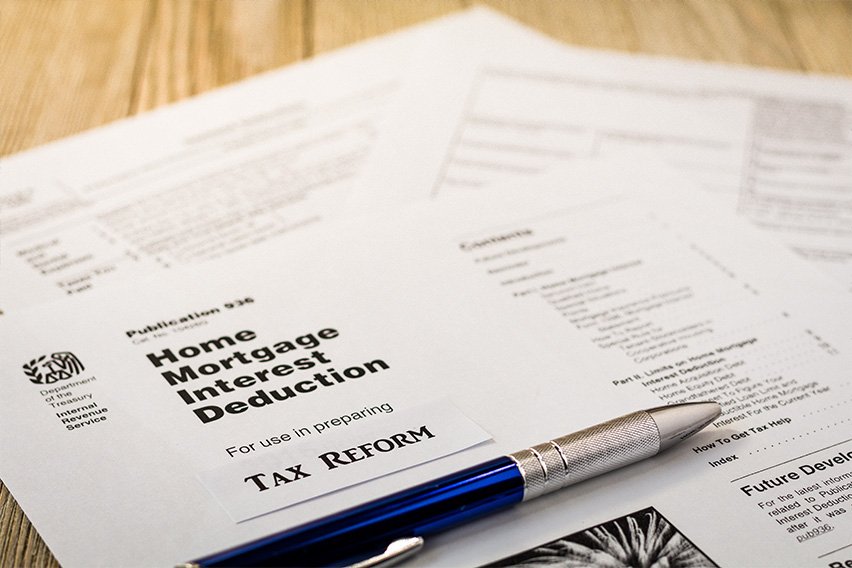 Is Interest on Mortgage Tax Deductible? a Primer.
Is Interest on Mortgage Tax Deductible? a Primer.